Gum sensitivity is a common oral health issue experienced by many people, often leading to discomfort and pain during brushing, eating, or drinking. This condition can be attributed to various factors, including gum disease, aggressive oral hygiene practices, and the consumption of acidic foods. In the United States, it's widespread, with studies indicating that a significant portion of the population has experienced gum-related discomfort at some point in their lives. Knowing how to address and manage gum sensitivity is crucial in maintaining optimal oral health and preventing more severe issues.
Understanding the Causes of Gum Sensitivity
The first step in addressing gum sensitivity is understanding its root causes. Poor oral hygiene is one of the primary contributors, leading to plaque buildup that causes gum irritation. In addition, aggressive brushing or using a hard-bristled toothbrush can damage the gum tissue, making it more sensitive. Consuming highly acidic foods and beverages can also wear away enamel and irritate gums, heightening sensitivity. Furthermore, medical conditions such as gum disease (gingivitis and periodontitis) are known to exacerbate this issue due to inflammation and infection of gum tissues.
Effective Oral Hygiene Practices
Improving oral hygiene is pivotal in minimizing gum sensitivity. Employing the correct brushing technique, typically a gentle circular motion with a soft-bristled toothbrush, can significantly reduce gum irritation. Flossing daily helps remove plaque and food particles from between teeth, preventing gum inflammation. Furthermore, using desensitizing toothpaste can provide immediate relief and protect against further sensitivity. Regular dental check-ups help in spotting potential issues early and maintaining overall gum health.
Dietary Adjustments for Healthier Gums
Your diet can play a significant role in gum health. Reducing the intake of sugary and acidic foods helps protect the enamel and reduce gum discomfort. Incorporating foods rich in calcium and vitamins C and D can strengthen teeth and gums, promoting less sensitivity. Drinking plenty of water throughout the day aids in removing food particles and bacteria that can harm gums. A balanced diet supports the immune system, aiding in the natural healing of gum tissues.
Medical Treatments and Professional Advice
For persistent gum sensitivity, consulting a dental professional is recommended. They can diagnose underlying conditions that may require specialized treatments such as scaling and root planing, which involves cleaning below the gum line to remove plaque and tartar. In some cases, prescribed mouth rinses or gels that contain anti-inflammatory and antibacterial properties can help alleviate symptoms. It's important to follow professional advice and treatments tailored to individual needs for optimal results.
Commitment to Long-term Oral Health
Addressing gum sensitivity effectively requires a commitment to comprehensive oral health practices and lifestyle changes. Adopting a consistent dental care routine, making dietary modifications, and seeking professional advice when necessary are key components. By taking these steps, you can not only alleviate symptoms of gum sensitivity but also prevent further oral health issues. Remember, maintaining healthy gums is essential for a confident and pain-free smile.
In conclusion, managing gum sensitivity involves understanding the causes, practicing appropriate oral hygiene, making dietary adjustments, and seeking professional care when needed. By taking proactive steps and consulting resources like Dentistry Toothtruth, you can enhance your dental health and enjoy the benefits of a healthy, comfortable mouth.

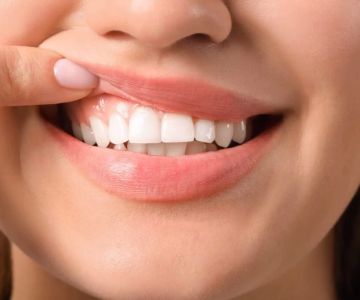
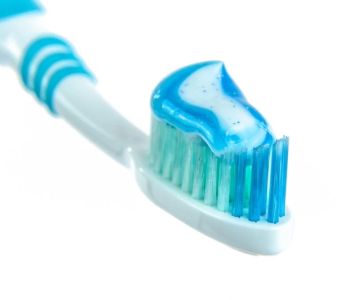
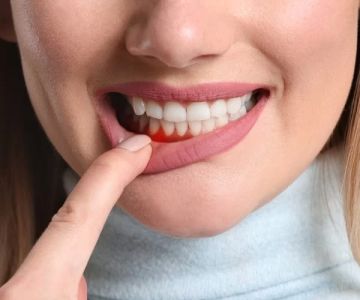
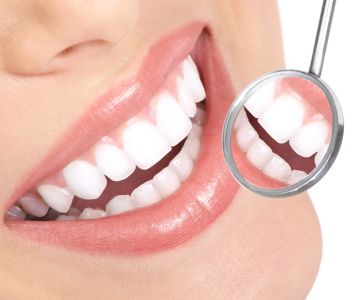

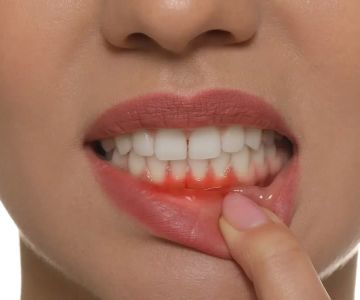
 Cary Dental Rejuvenation4.0 (473 review)
Cary Dental Rejuvenation4.0 (473 review) Murray Orthodontics5.0 (538 review)
Murray Orthodontics5.0 (538 review) Gentry Dentistry4.0 (164 review)
Gentry Dentistry4.0 (164 review) Isabel Correa DDS inc.3.0 (11 review)
Isabel Correa DDS inc.3.0 (11 review) Valley View Dental4.0 (1195 review)
Valley View Dental4.0 (1195 review) Kiddsmiles Pediatric Dentistry - White Plains4.0 (236 review)
Kiddsmiles Pediatric Dentistry - White Plains4.0 (236 review) The Importance of Oral Health Education During Pregnancy for a Healthy Pregnancy
The Importance of Oral Health Education During Pregnancy for a Healthy Pregnancy Best Tips for Brushing Your Teeth Properly for Healthy Gums: Essential Techniques for Oral Health
Best Tips for Brushing Your Teeth Properly for Healthy Gums: Essential Techniques for Oral Health Why Skipping Dental Checkups Can Lead to Bigger Oral Health Problems
Why Skipping Dental Checkups Can Lead to Bigger Oral Health Problems Advantages of Porcelain Dental Restorations
Advantages of Porcelain Dental Restorations How Can Diabetes Cause Tooth and Gum Problems? Preventing and Managing Oral Health Issues
How Can Diabetes Cause Tooth and Gum Problems? Preventing and Managing Oral Health Issues Healthy Habits for Promoting Good Oral Health and Hygiene: Tips for a Healthy Smile
Healthy Habits for Promoting Good Oral Health and Hygiene: Tips for a Healthy Smile